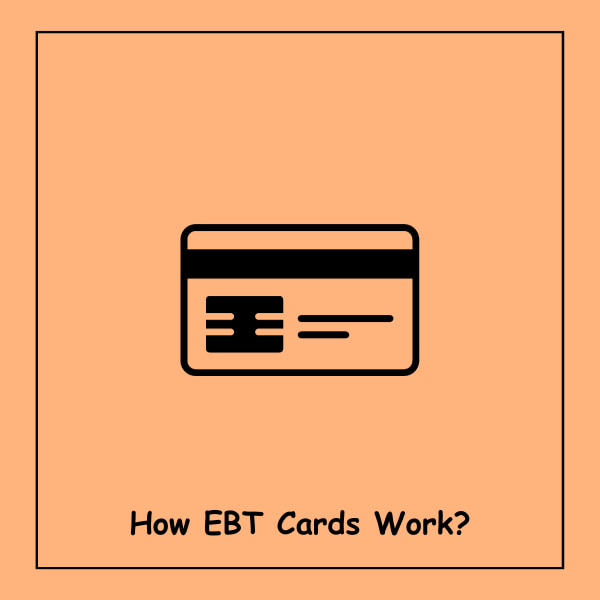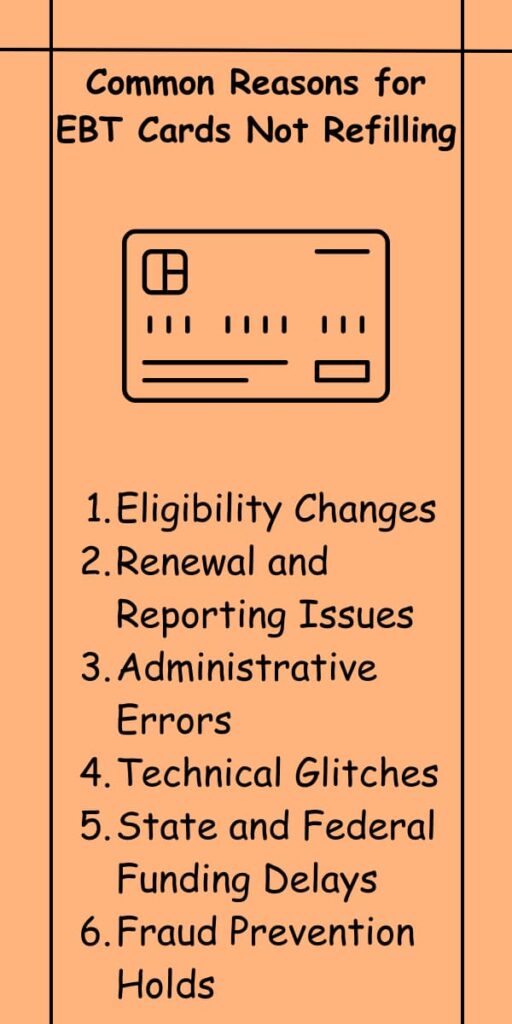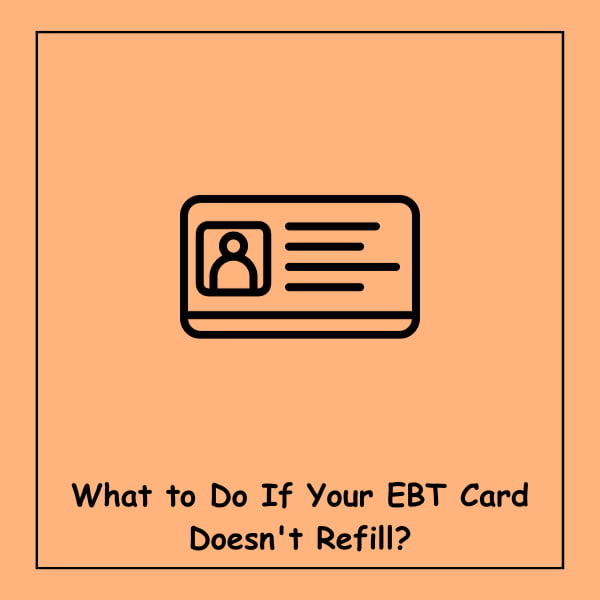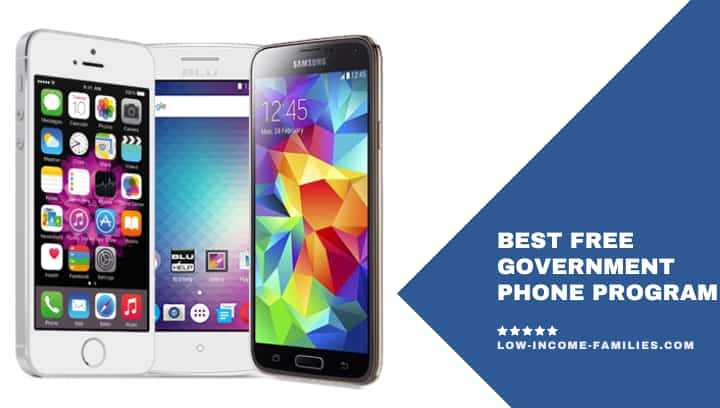Electronic Benefit Transfer (EBT) cards are a critical lifeline for millions of Americans.
These cards, functioning like debit cards, allow individuals and families to receive and use government-assisted benefits, such as the Supplemental Nutrition Assistance Program (SNAP) and the Women, Infants, and Children (WIC) program.
Designed to support food purchases, EBT cards are expected to be refilled regularly, usually monthly, with the necessary funds to ensure that beneficiaries can meet their nutritional needs.
However, there are instances when beneficiaries find that their EBT cards have yet to be refilled as expected.
This can lead to significant stress and confusion, as the lack of funds affects their ability to purchase essential food items.
Understanding why an EBT card might not be refilled on schedule is crucial for recipients to address the issue effectively and minimize any disruption to their food access.
This article delves into the common reasons behind this problem and offers guidance on what steps can be taken to resolve it.
By exploring the complexities behind EBT card refilling, we aim to demystify the process and provide practical solutions for those affected.
Read More: Free Beds for Low Income Families
How EBT Cards Work?

Electronic Benefit Transfer (EBT) cards function similarly to debit cards, providing an efficient and secure method for distributing government assistance benefits like the Supplemental Nutrition Assistance Program (SNAP) and the Women, Infants, and Children (WIC) program.
These cards, secured with a Personal Identification Number (PIN), are loaded with monthly benefits depending on each recipient’s eligibility criteria, such as income level, family size, and specific needs.
The benefits are designed for purchasing essential food items, with SNAP focusing on a broad range of groceries and WIC targeting the nutritional needs of pregnant women, new mothers, and young children.
Recipients can use these cards at approved grocery stores and supermarkets, subject to certain restrictions on eligible items.
It’s important for beneficiaries to periodically recertify their eligibility and report any significant life changes to ensure uninterrupted access to these benefits.
This system aims to provide a discreet, dignified way for individuals and families to access vital food resources, reflecting a commitment to supporting those in need within the community.
Read More: Blu M8l Tablet Free Government
Common Reasons for EBT Cards Not Refilling

There are several common reasons why an EBT card might not be refilled as expected:
Eligibility Changes:
Eligibility changes are a key reason for interruptions in EBT card refills. These changes can arise from various factors such as income fluctuations, employment status alterations, family size or composition modifications, and even relocation to a different state.
For example, an increase in income or a change in household size can lead to a reduction or cessation of benefits, as EBT programs like SNAP and WIC have specific income and household composition thresholds for eligibility.
Additionally, specific programs have criteria based on age, student status, or total assets, which can also impact benefit eligibility.
Beneficiaries must promptly report any significant life changes to the relevant social services, as this helps assess their current eligibility and ensures a smooth continuation of necessary assistance.
Renewal and Reporting Issues:
Renewal and reporting issues are common reasons for interruptions in refilling EBT (Electronic Benefit Transfer) cards.
These cards, used for accessing benefits like SNAP (Supplemental Nutrition Assistance Program) and WIC (Women, Infants, and Children), require recipients to renew their eligibility periodically.
Please complete this renewal process, often submitting updated information about income, family size, and other eligibility factors, to avoid suspending or terminating benefits.
Additionally, recipients are obligated to report any significant changes in their circumstances, such as changes in income, employment status, or household composition.
Delays or inaccuracies in reporting these changes can also result in discrepancies in benefit allocation.
This requirement is crucial for maintaining the program’s integrity and ensuring that assistance is appropriately tailored to current needs.
Neglecting these responsibilities can lead to unexpected lapses in benefits, creating challenges for recipients dependent on these programs for their basic needs.
Administrative Errors:
Administrative errors can lead to issues with the refilling of EBT (Electronic Benefit Transfer) cards, which are crucial for beneficiaries of programs like SNAP (Supplemental Nutrition Assistance Program) and WIC (Women, Infants, and Children).
These errors can stem from various sources within the agencies managing these programs.
For instance, incorrect or outdated information in a recipient’s file, such as an old address or an error in income reporting, can disrupt the benefit distribution process.
Clerical mistakes made during data entry or processing eligibility documents can also fail to refill an EBT card.
Additionally, technical glitches in the system that manages benefit distribution can cause delays or errors in loading funds onto the cards.
These administrative oversights can be particularly distressing for beneficiaries who rely on these benefits for daily sustenance.
To resolve such issues, recipients must maintain open communication with their local benefits office, ensuring that all personal information is up-to-date and reporting any discrepancies in benefit disbursement as soon as they are noticed.
Technical Glitches:
Technical glitches can significantly impact the refilling of EBT (Electronic Benefit Transfer) cards, which are essential for beneficiaries of assistance programs like SNAP (Supplemental Nutrition Assistance Program) and WIC (Women, Infants, and Children).
These glitches can arise from various technical issues within the electronic systems that manage and distribute these benefits.
For instance, server downtimes, software malfunctions, or problems in the electronic data interchange can delay or prevent the proper loading of funds onto EBT cards.
These technical issues can be incredibly disruptive as they may occur unexpectedly and affect many recipients simultaneously.
Such glitches can cause temporary inconveniences or severe hardships for those who rely on these benefits for their essential needs.
Resolving technical glitches often requires prompt action from the managing agencies to identify and fix the underlying technical problems and ensure the benefits are disbursed correctly and on time.
Beneficiaries affected by such issues are usually advised to stay informed about the status of their benefits and contact their local assistance office for updates and guidance.
State and Federal Funding Delays:
State and federal funding delays can significantly impact the refilling of EBT (Electronic Benefit Transfer) cards, which are critical for individuals and families relying on government assistance programs like SNAP (Supplemental Nutrition Assistance Program) and WIC (Women, Infants, and Children).
These delays can arise from budgetary issues or legislative impasses at the state or federal level, leading to a temporary shortfall or delay in the funds allocated for these welfare programs.
Such delays can be particularly challenging during periods of economic downturn or significant changes in government policies or administration.
These funding issues can lead to unpredictable delays in the distribution of benefits, causing uncertainty and hardship for beneficiaries who depend on these funds for their daily sustenance.
In response to these challenges, beneficiaries are often advised to contact their local assistance offices for the latest information and potential emergency assistance options. At the same time, the funding issues are being resolved.
Fraud Prevention Holds:
Fraud prevention holds are measures taken by agencies managing EBT (Electronic Benefit Transfer) programs, such as SNAP (Supplemental Nutrition Assistance Program) and WIC (Women, Infants, and Children), to safeguard against misuse of benefits.
These holds are implemented when there’s suspicion of fraudulent activity or irregular patterns in using EBT cards.
Indicators of potential fraud might include unusual spending patterns, transactions at atypical locations, or other activities that deviate from a recipient’s standard usage patterns.
When a fraud prevention hold is placed on an EBT account, the refilling of benefits may be temporarily suspended while the suspicious activity is investigated.
This process is crucial to maintain the integrity of assistance programs and ensure that funds are used appropriately to support those genuinely in need. However, such holds can inadvertently affect legitimate beneficiaries, causing disruption in their access to vital benefits.
Beneficiaries experiencing a fraud prevention hold on their accounts must provide additional information or clarification to resolve the concerns.
It’s essential for those affected to respond promptly and cooperate with the investigating authorities to expedite the resolution process.
Clear communication and timely action can help lift the hold and resume the regular disbursement of benefits.
Read More: Ashley Furniture Free Bed Assistance Program
What to Do If Your EBT Card Doesn’t Refill?

If your EBT (Electronic Benefit Transfer) card doesn’t refill as expected, it’s essential to take prompt and appropriate steps to address the issue. Here’s what you can do:
Check Your Balance and Transaction History:
- First, verify whether your EBT card has been refilled by checking the balance.
- You can do this online, through a mobile app (if available), by phone, or by reviewing your last receipt from a purchase made with the card.
Review Eligibility and Renewal Dates:
- Ensure that your eligibility for the program (like SNAP or WIC) is still valid and that you have all the renewal deadlines.
- If your circumstances have changed (e.g., income, employment status, family size), this could affect your benefits.
Contact Your Local SNAP or Benefits Office:
- Contact your local office for assistance. They can provide specific information about your account, clarify if there are any issues, and guide you on the next steps.
Report Any Administrative or Technical Issues:
- If you suspect that there has been an administrative error or a technical glitch affecting your benefits, report it immediately. The office can investigate and rectify any mistakes on their part.
Provide Necessary Documentation Promptly:
- If you’ve been asked to submit additional documentation for verification or renewal, do so as quickly as possible to avoid further delays.
Inquire About Emergency Assistance:
- If you need food assistance due to a delay in EBT refilling, inquire about emergency assistance programs available in your area.
Stay Informed and Follow Up:
- Keep yourself informed about any updates or changes to the program that might affect you. Follow up regularly if your issue still needs to be resolved promptly.
Read More: Free Government Grants for Dental Implants
Conclusions
In conclusion, while EBT (Electronic Benefit Transfer) cards are a crucial support system for many, issues like eligibility changes, administrative errors, and technical glitches can disrupt their regular refilling.
Beneficiaries should stay informed, report changes promptly, and regularly check their card balance to ensure uninterrupted access to programs like SNAP and WIC.
Proactive communication with local agencies and maintaining up-to-date information are key to managing and preventing potential issues. By taking these steps, recipients can continue to access the vital assistance they need for their well-being and nutrition.
Most Searching Posts:
- Government Window Replacement Program
- Free Government Phone
- Free Roofing for Seniors
- I Want Free Laptop from Google
- Car Vouchers for Single Mothers
- T-Mobile Free Tablet EBT
- Safelink Free Tablet
- How to Get a Free Laptop from Amazon
- Free Gas Cards for Homeless
- Free Android Tablet
- Free Medicaid Tablet
- Free Refrigerator Program Cleveland Ohio
- Free Mobility Scooter
- Free Laptop for Veterans
- Free Government Smartwatch
- How to Get Free Cleaning Supplies
Frequently Asked Questions (FAQ):
Why Hasn’t My EBT Card Been Refilled This Month?
Your EBT card may not have been refilled due to changes in your eligibility, missed renewal deadlines, administrative errors, technical issues, funding delays, or fraud prevention holds. It’s essential to check your account status and contact your local benefits office for specific information.
How Do I Check the Balance on My EBT Card?
You can check your EBT card balance online, via a mobile app (if available), by calling the number on the back of your card, or by reviewing your last purchase receipt.
What Should I Do If There Is an Administrative Error with My EBT Card?
Contact your local SNAP or benefits office immediately if you suspect an administrative error. Provide them with all the necessary information to rectify the mistake.
Can Changes in My Income Affect My EBT Benefits?
Yes, changes in your income can impact your eligibility for EBT benefits. It’s crucial to report any income changes to your benefits office immediately.
What Happens If I Don’t Renew My Benefits on Time?
Please renew your benefits on time to avoid a temporary suspension or termination of your EBT benefits. It’s essential to keep track of renewal deadlines and submit any required documentation promptly.
Who Should I Contact If I Have Technical Issues with My EBT Card?
For technical issues, contact the customer service number on your EBT card’s back or your local benefits office.
Can My EBT Card Be Suspended for Suspected Fraud?
If there is suspicion of fraudulent activity, your EBT card can be temporarily suspended while the issue is investigated.
Are There Emergency Resources If My EBT Card Isn’t Refilled?
If you’re in immediate need due to a delay in EBT refilling, contact your local benefits office or community organizations for information on emergency food assistance programs.
How Do I Report Changes That Might Affect My EBT Benefits?
Changes can be reported directly to your local SNAP or benefits office, often through phone, online portals, or in-person visits.
How Can I Prevent Issues with My EBT Card in the Future?
– Stay informed about program rules, regularly check your EBT card balance, promptly report any changes in your circumstances, and ensure all personal information is up-to-date with your local benefits office.




